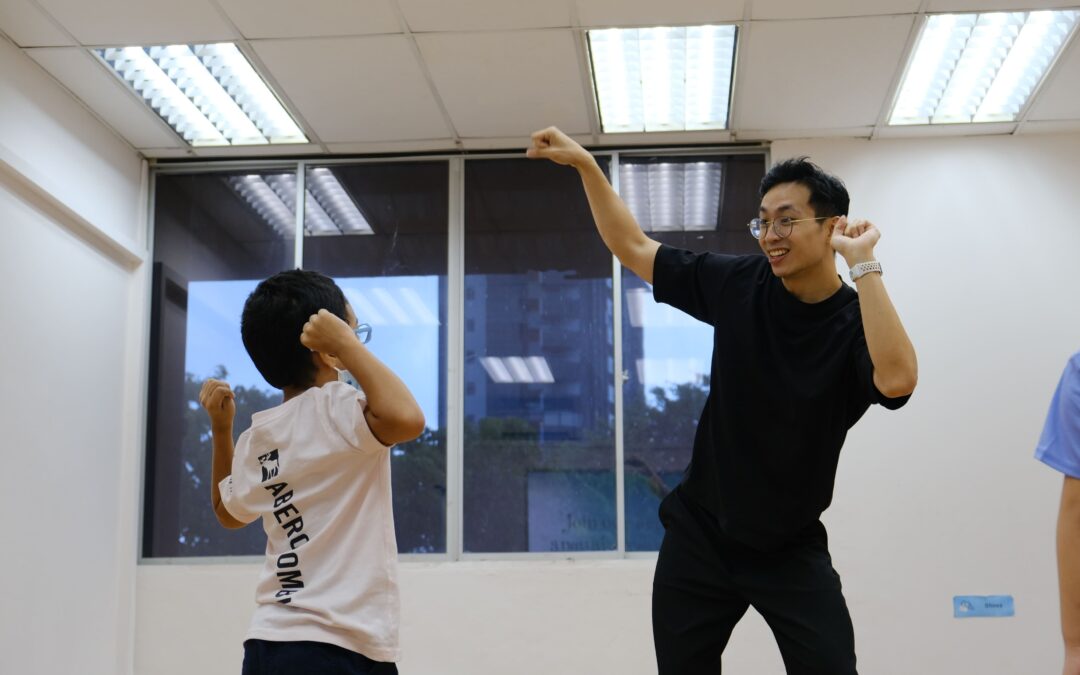Best Age to Learn Public Speaking
Public speaking can feel like standing at the edge of a high diving board, the fear and excitement mixing in equal measure. But what if we could teach our kids to take that leap with confidence and grace from an early age? The question of the best age to start kids public speaking is one that many parents ponder. Let’s explore this topic and discover how early training in public speaking can lay a foundation for a lifetime of confident communication.
The Early Bird Advantage in Kids Public Speaking
Starting early in life has its perks. When children begin learning public speaking at a young age, they naturally absorb the skills and confidence needed to express themselves. Imagine a toddler learning to speak – every new word is a small victory. Similarly, starting kids public speaking classes early on can transform hesitant murmurs into articulate speeches.
Building Blocks of Communication in Early Childhood
During the early years, children are like sponges, soaking up new information and experiences. Introducing public speaking at this stage capitalizes on their natural curiosity and eagerness to learn. Kids public speaking classes designed for younger children focus on playful activities that make learning fun. It’s akin to planting seeds in fertile soil; the earlier you plant, the stronger the roots.
The Sweet Spot: Ages 6 to 12 for Kids Public Speaking
While it’s beneficial to start early, ages 6 to 12 are particularly crucial for kids public speaking. At this age, children are developing their social skills and beginning to understand the nuances of communication. They’re at a stage where they can grasp more complex concepts and enjoy structured learning environments. Think of it as teaching a child to ride a bike – once they get the hang of it, they’ll never forget.
Case Study: Public Speaking Success in Singapore Schools
A fascinating study conducted by the National Institute of Education in Singapore revealed that children who participated in public speaking activities from a young age showed significant improvements in both academic performance and social interactions. The research highlighted how kids public speaking programs in schools helped students build self-confidence and enhance their communication skills (Source: National Institute of Education, Singapore).
Another study from Singapore Management University focused on primary school students participating in public speaking workshops. The results were striking: students exhibited increased self-esteem and a greater willingness to engage in classroom discussions. This research underscores the importance of integrating public speaking into the early education curriculum (Source: Singapore Management University).
Navigating Adolescence with Public Speaking Skills
As children transition into their teenage years, the importance of effective communication becomes even more pronounced. Kids public speaking classes during adolescence help refine and polish these skills. Adolescents face unique challenges – peer pressure, self-doubt, and identity exploration. Public speaking training equips them with the tools to articulate their thoughts and stand their ground confidently. It’s like giving them a compass to navigate the sometimes turbulent waters of teenagehood.
The Lifelong Benefits of Kids Public Speaking
The benefits of starting public speaking early extend far beyond the classroom. Children who develop these skills early on carry them into adulthood, where they become valuable assets in both personal and professional spheres. Public speaking fosters critical thinking, enhances problem-solving abilities, and promotes leadership qualities. It’s like teaching a child to swim; once they learn, they’re equipped for life.
The Role of Parents and Educators in Kids Public Speaking
Parents and educators play a pivotal role in nurturing a child’s public speaking abilities. Encouragement and positive reinforcement are key. Enrolling children in kids public speaking classes and providing opportunities for them to practice at home can make a significant difference. It’s similar to tending a garden; with care and attention, the plants thrive.
Overcoming Fear and Anxiety in Public Speaking
Fear of public speaking is common, even among adults. Addressing this fear early in life can prevent it from becoming a significant barrier. Kids public speaking classes incorporate techniques to manage anxiety, such as breathing exercises, visualization, and positive affirmations. These strategies help children approach public speaking with a calm and focused mindset. It’s like giving them a shield to ward off the dragons of fear.
Personal Development Through Kids Public Speaking
Public speaking isn’t just about talking; it’s about connecting with others, sharing ideas, and influencing change. Kids public speaking classes help children develop empathy and understanding by encouraging them to see things from different perspectives. They learn the art of storytelling, which is a powerful tool for making connections and leaving a lasting impact. It’s like weaving a tapestry of human experience, one story at a time.
Conclusion: The Optimal Age for Kids Public Speaking
In conclusion, the best age to start kids public speaking is as early as possible, with the ages of 6 to 12 being particularly advantageous. Early exposure to public speaking fosters confidence, communication skills, and personal growth. These classes provide children with a strong foundation that supports their development into articulate and confident individuals.
Are you ready to help your child embark on this transformative journey? Enroll them in one of our Visionary Voices Programmes at ThinkingPlus International and watch them flourish. Give your child the gift of confidence and the ability to communicate effectively, setting them on a path to success.


Recent Comments